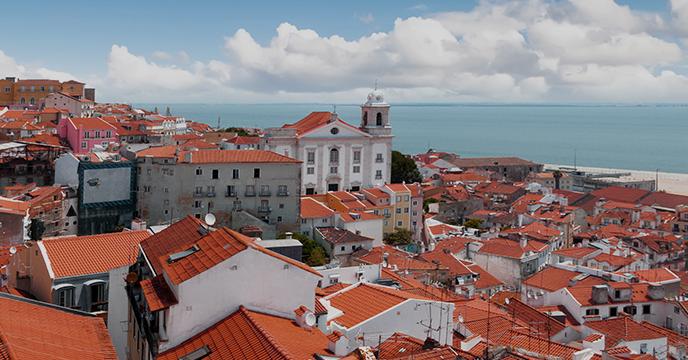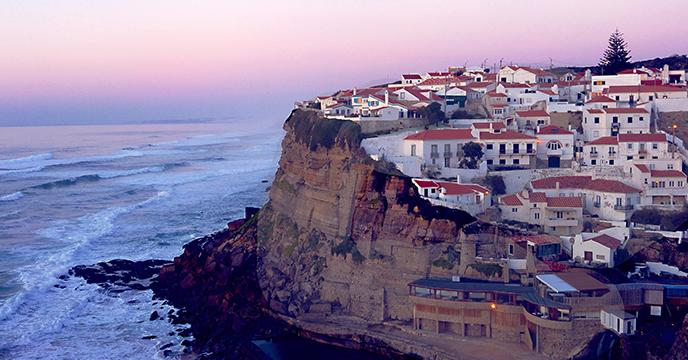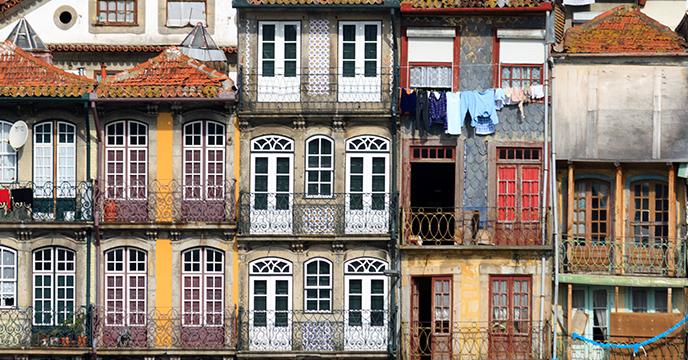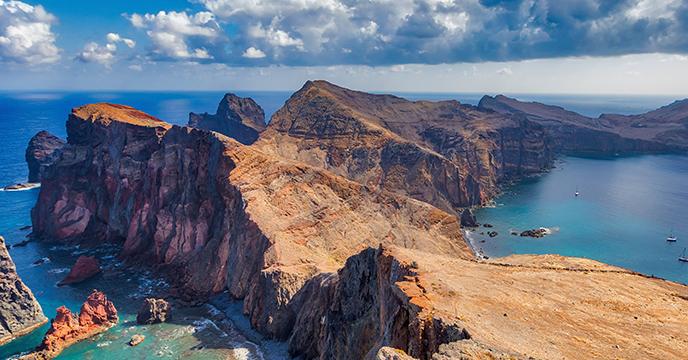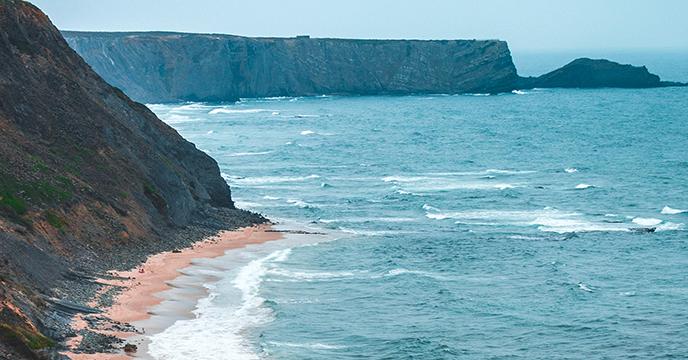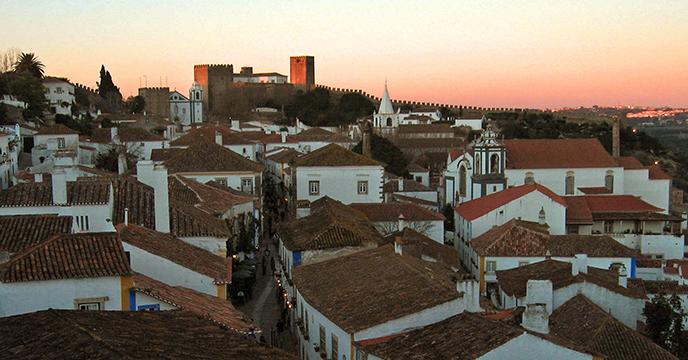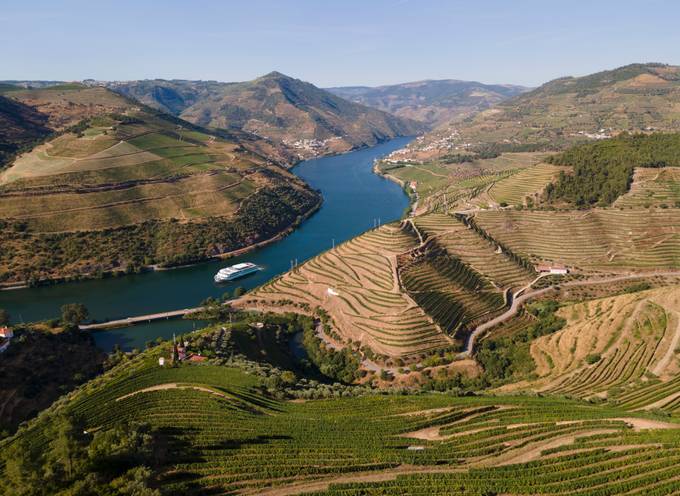
Portugal Travel Guide
Portugal is a land of glittering contrasts. From the rolling hills that line the Douro Valley to Roman ruins and medieval cobblestone streets in Porto, to the vibrant cosmopolitan spirit of Lisbon, it’s no wonder this European gem has piqued the interest of travellers from around the world. This year, the spotlight is well and truly on Portugal – and this dynamic destination will not disappoint.
The Highlights


The Basics
The Location
Portugal is located in Europe on the Iberian Peninsula, bordering Spain. From Dubai, a non-stop flight is 8h 45m, and from London, it is roughly 2h 20m direct.
Capital City
Lisbon is the capital city of Portugal and is the largest city and due to its central location, it became the capital city in 1255.
Main Airport
Humberto Delgado Airport, also known as Lisbon Airport is the hub for international and domestic flights and can be found just 7 kilometres from the city centre of Lisbon.
- Code
- LIS
- Closest City
- Lisbon
Language Spoken
The official language of Portugal is Portuguese, however, English is commonly spoken across the country and in popular tourist destinations.
Currency
Portugal uses the Euro. The currency code is EUR. ATMs are found across the country and are easily accessible. Before you travel, make sure you check with your bank with regards to foreign fees.
Visas
Portugal is part of the Schengen area, and visitors from Australia, the US, UK and Canada can travel for up to six months visa-free. Before you travel, check your local embassy as entry requirements are always subject to change.
Electricity
Portugal has 220-volt electricity and the cycles (Hz) are 50 per second. Depending on where you travel from, you may need a converter or transformer if your appliances are 110 volts.
Vaccinations
It is recommended that travellers are covered for diphtheria, tetanus, measles, mumps, rubella and polio, however, these are not compulsory to visit Portugal. Before you travel, best to visit a travel doctor at least six weeks before departure.
Emergency Calls
The phone numbers to call in case of emergency (fire, police or ambulance) is 112.
When to Visit

Portugal Tours

Visit Responsibly
Travelling responsibly means respecting the communities, culture and environment of the places you visit. Keep these tips in mind when travelling to Portugal:
Go green. Be environmentally conscious on the road by taking short showers; turning off the lights in your hotel room when you leave; and resisting the urge to collect any plants, seashells, or other natural flora.
Respect cultural differences. Before travelling, read about the local culture and customs – even just knowing the dress code and a few basic phrases in the local language will go a long way.
Support local businesses. Enjoy a more authentic experience and directly support the local economy by travelling with a local guide, eating in local restaurants, buying from local artisans, and staying in locally-owned and operated accommodations.
Wherever possible, avoid single-use plastics. Pack reusable items such as your own shopping bags, utensils, a water bottle, and a straw. These items are typically lightweight and compact, and will greatly reduce your consumption of plastics.
Be conscious of overtourism. Opt to visit the lesser-known regions of Portugal or travel outside the peak season – you'll likely even get a better deal and won't have all the crowds!
Sustainable Tourism in Portugal
Mandated Sustainable Tourism
In Portugal, sustainable tourism is not just a practice, but it is written in the law. 4 years ago, Portugal's government mandated that 90 percent of tourism businesses would comply with rules governing water, waste and energy use by 2027.
Rural Regions in the Spotlight
Cultural tourism has been growing in Portugal in recent years, which has increased the number of visitors arriving in Portugal and enjoying more rural regions. This shift has helped disperse the benefits of tourism outside of the typical hot spots, and in turn also helps to develop rural regions within the country. As a visitor, going off the beaten path and supporting local also allows you to experience authentic Portuguese traditional culture!
BYOB: Bring Your Own Bottle
Tap water is safe to drink pretty much anywhere in Portugal, so make sure to pack your own bottle to reduce waste and save some money during your trip. If you are ever in doubt of water potability, ask your guide or host.
FAQs about Portugal
Do you tip in Portugal?
It is recommended to leave a tip of 5% to 10% in a restaurant when in Portugal. In hotels, it is suggested to tip €1-2 for bellhops who carry your luggage up to the room, and for taxi drivers, it is always recommended to round your bill up from €7 to €10 and will always be appreciated.
What is the internet access like?
Internet connection is great across Portugal, and you should have no problem with day-to-day tasks like emailing or surfing the web. WiFi is available in many hostels and hotels for free.
Is the tap water safe to drink?
Yes, the tap water in Portugal is safe to drink and there is no issue with water.
Can I use my credit cards?
Yes, of course. ATMs are widely available and are the best source of accessing money, except in the smallest villages. Credit cards accepted in hotels and larger cafes across the country. Keep in mind that the ATM limit is €200 per withdrawal, and many banks charge a foreign transaction fee.
What are the public holidays?
Along with common public holidays such as New Year’s Day, Christmas and Good Friday, Portugal has Freedom Day on April 25, May Day on May 1, Portugal National Day on June 10. Other holidays may vary between regions, so check your itinerary before you travel.
is it safe to travel in Portugal?
Absolutely! As a popular destination for travellers from across the world, Portugal is most certainly safe. Simple precautions such as avoiding walking home late at night and keeping an eye on your belongings will help to keep you out of trouble.
